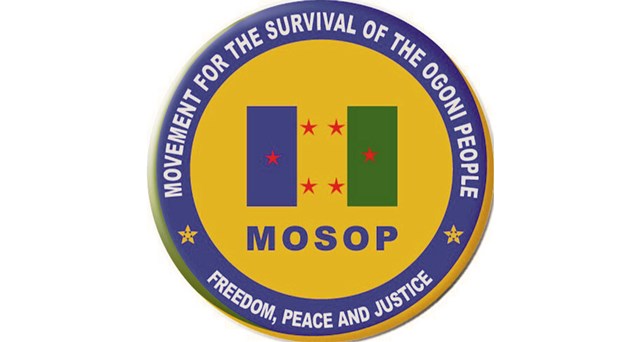Oil & Energy
CBN Stops Dollar Sales To NNPC

Central Bank of Nigeria (CBN), has stopped local and international oil companies from selling dollars to the Nigerian National Petroleum Corporation (NNPC).
The apex bank said the move is in line with the its determination to improve foreign exchange supply to the economy as the impact of the Coronavirus (COVID-19) pandemic bites harder on the economy. The country’s foreign exchange earnings have been depleted.
CBN Governor Godwin Emefiele said the new dollar remittance policy will boost local dollar collections.
Breaking the news during an emergency meeting with bank chief executive officers in Lagos at the weekend, Emefiele spoke of the urgent need to improve dollar supply to the apex bank, which has vowed to meet all dollar obligations to correspondent banks from importers.
CBN’s commitment to naira stability is accompanied with new policies and bottlenecks meant to reduce dollar spending and meet critical obligations, including those to correspondent banks on Letters of Credit and other trade obligations.
The dollar is expected to be sold to the CBN at N377 to the dollar; same rate banks are to auction dollars to the regulator.
The CBN will also be granting naira and forex funding to key local pharmaceutical companies for procurement of raw materials and equipment required to increase local drug production in the country.
They are Emzor, Fidson, GSK, May & Baker, Unique Pharma, Swiss Pharma, Neimeth, Sagar, Orange Drugs, Dana Pharma, among others, hence the need to effectively harness Nigeria’s dollar earnings in the interest of the economy.
Emefiele explained that the primary focus of the bank at this time is preserving confidence, financial stability and support for the economy.
He said: “We are committed to improving forex supply to the CBN, by directing all oil companies -international, and domestic, whether you are in the service industry, or producing, upstream, mid-stream, downstream, or related companies, to sell their foreign exchange to the CBN and no longer to NNPC, for purposes of funding even import of petroleum products, and also new policy on price modulation.”
The CBN had on Friday officially devalued the naira to N380 to a dollar. The devaluation came after over three years of push from financial market managers, the World Bank and International Monetary Fund for the local currency to be devalued.
Aside devaluing the naira, the CBN also adopted a unified exchange rate, and pushed the official rate of the naira to N376 to dollar for International Money Transfer Operators rate to banks; N377 to dollar for banks’ dollar sale to CBN and pegged CBN’s dollar sales to banks at N378 and limited dollar sales to Bureaux de Change (BDCs) to $20,000 per week.
Emefiele also advised Nigerians to begin prioritising their import needs, and focus more on sourcing raw materials and inputs locally.
Emefiele said: “In deed, there is no choice than to source raw materials locally. From the information available to us, the various lockdowns in different parts of the world, all counties are locking their borders, and making it difficult for even raw materials and inputs to leave their borders.
“So, it means we have no other choice than to look inwards, especially now we can say that those inputs and raw materials can be sourced locally.”
The CBN, in February, introduced new domiciliary account rules in which it directed that customers can deposit dollar into their domiciliary accounts but are not allowed to transfer it to another party.
Also, only electronic fund transfers into domiciliary accounts can be transferred from such accounts to third parties while cash deposits into such accounts can only be withdrawn in cash.
Oil & Energy
Bill Prohibiting Gas Flaring Passes 2nd Reading

The Bill for an act to prohibit gas flaring, encourage commodity utilisation, and provide for penalties and remedies for gas flaring violations has passed its second reading in the House of Representatives.
Sponsored by the Member representing Ikorodu Federal Constituency (APC, Lagos), Babajimi Adegoke Benson, the bill seeks to prohibit the flaring and venting of natural gas, except in strictly regulated circumstances, while encouraging the utilisation of gas resources to foster economic growth and energy generation.
The proposed legislation aims to mitigate the environmental, health, and economic impacts of gas flaring, aligning Nigeria’s oil and gas operations with international climate change commitments.
Offenders, who violate the provisions of the proposed law, would face stringent penalties, including fines of $5 per 1,000 standard cubic feet of gas flared and potential suspension of operations for repeat violations.
Leading debate on the general principles of the bill, Benson said gas flaring has plagued Nigeria for decades, resulting to severe environmental degradation, public health crises, and economic losses while it environmentally, contributes to greenhouse gas emissions, global warming, and acid rain, exacerbating climate challenges.
The lawmaker said public health impacts of the practice are equally dire, as pollutants from gas flaring cause respiratory and cardiovascular diseases, particularly among residents of communities close to flaring sites.
According to him, economically, flaring results in the waste of a valuable resource that could otherwise be harnessed for energy generation or exported to generate revenue.
Benson insisted that the bill was designed to address those issues while bringing Nigeria in line with global standards such as the Paris Agreement on climate change.
“The bill provides for a comprehensive prohibition of gas flaring except in emergencies or when explicitly authorised by the Nigerian Upstream Petroleum Regulatory Commission (NUPRC).
“Operators are required to submit and implement Gas Utilisation Plans, detailing how gas that would otherwise be flared will be captured, processed, or commercialised.
“Offenders, who violate these provisions, face stringent penalties, including fines of $5 per 1,000 standard cubic feet of gas flared and potential suspension of operations for repeat violations. Furthermore, the Bill ensures that communities affected by gas flaring are entitled to compensation and environmental restoration, creating a mechanism for redress.
“Transparency and accountability are integral to the enforcement framework of this Bill. Operators must submit regular reports on gas flaring incidents, which will be audited and made publicly available by the NUPRC. This approach ensures public oversight and stakeholder engagement, fostering trust and compliance.
“Nigeria’s adoption of this Bill positions the country to emulate such success, ensuring a balance between environmental stewardship and economic development.
“The implementation of this Bill will be overseen by the Nigerian Upstream Petroleum Regulatory Commission, which will monitor compliance through regular audits, enforce penalties, and facilitate gas utilisation projects in collaboration with operators and development partners.
“The Anti-Gas Flaring (Prohibition and Enforcement) Bill, 2024, is a timely and necessary response to one of Nigeria’s most pressing environmental challenges. Its provisions are both practical and forward-looking, addressing immediate concerns while laying the groundwork for a sustainable future.
“I urge all Honourable Members to support the Second Reading of this Bill as a demonstration of our collective commitment to environmental protection, public health and economic progress”, he added.
###
Oil & Energy
‘Indigenous Companies To Gain From Shell’s Contract Awards’

Oil major, Shell, has restated its commitment to the development of Nigerian companies through contract awards and scaling up of expertise.
Managing Director, Shell Nigeria Exploration and Production Company ((SNEPCO) Limited, Ron Adams, made the remark while speaking at the Opening Ceremony of the 13th edition of the Practical Nigerian Content forum held in Yenagoa, Bayelsa State, with the theme “Deepening the Next Frontier for Nigerian Content Implementation”.
Represented by the Manager, Business Opportunity, SNEPCO’s Bonga South-West Aparo Project, Olaposi Fadahunsi, he said several benefitting companies had taken advantage of the patronage to expand their operations and improve their expertise and financial strength.
Adams said, “Shell companies execute a large proportion of their activities through contracts with third parties, and Nigeria-registered companies have been key beneficiaries of this policy aimed at powering Nigeria’s progress”.
He emphasized that Shell companies in Nigeria also continued to develop indigenous manpower through scholarship programmes with over 3,772 undergraduate and 109 Niger Delta post graduate scholarships since 2016.
“As we speak, beneficiaries of the 13th edition of the Niger Delta Post Graduate Scholarship awards are pursuing their studies in the United Kingdom. The employability rate of the scheme is high with over 98% of the graduates who won the awards securing employment in the oil and gas industry, academia and Information Technology, among other sectors, within one year of completing their studies”.
He commended the Nigeria Content Development and Monitoring Board (NCDMB) for ensuring compliance with the Nigerian Content Act saying “Nigerian content will continue to be an important part of Shell operations”.
The four-day conference hosted by the Nigerian Content Development and Monitoring Board (NCDMB) and participating companies reviewed progress on the development of Nigerian content pertaining to the implementation of the Nigerian Oil and Gas Industry Development (NOGICD) Act since it was enacted in 2010.
Shell companies in Nigeria are among the more than 700 oil and gas entities that participated in the forum with a strong message of support for Nigerian companies, having awarded contracts worth $1.98 billion to the businesses in 2023 in continuing effort to develop Nigerian content in the oil and gas industry.
Oil & Energy
NNPC Begins Export From PH Refinery

The Nigerian National Petroleum Company Limited (NNPCL) has sold the first cargo of Port-Harcourt low sulfur straight run fuel oil (LSSR) to Dubai-based Gulf Transport & Trading Limited (GTT).
The company is expected to load the cargo in the coming days onboard the Wonder Star MR1 ship, signalling the commencement of operations at the plant and the exportation of petroleum products.
The ship would load 15,000 metric tons of the product, which translates to about 13.6 million litres.
Although the volume coming from the NNPC into the global market is still small, the development has the potential to impact the Very Low Sulphur Fuel Oil (VLSFO) benchmarks in the future, while changing the market realities for Atlantic Basin exporters into Nigeria and other regions.
The sulfur content of the export by NNPC stands at 0.26 per cent per wt and a 0.918 g/ml density at 15°C, according to Kpler, a data and analysis company.
The cargo was reportedly sold at an $8.50/t discount to the NWE 0.5 per cent benchmark on a Free on Board (FOB) basis.
Kpler reported that the development would help displace imports from traditional suppliers in Africa and Europe, as Nigeria’s falling clean product (CPP) imports are already decreasing, dragging imports into the wider West Africa region lower as well.
-
Business8 hours ago
No Mandate To Revive National Carrier – Aviation Ministry
-

 News9 hours ago
News9 hours agoOgoni Day: MOSOP Unites, Demands Share from OML 11
-

 Politics3 hours ago
Politics3 hours agoAPP Wants INEC To Conduct By-Election To Fill Rivers Assembly Vacant Seats
-
Niger Delta8 hours ago
We’re Upgrading Tourism Sites Across C’River – Otu
-

 Niger Delta8 hours ago
Niger Delta8 hours agoKalabari Media Forum Hails Recognition Of Dokubo Asari As Amayanabo
-

 News9 hours ago
News9 hours agoIn 2025, God’ll Crush Rivers Enemies – Fubara …Prays For Peace, Progress Of State …As He Attends Crossover Service In Opobo
-
News15 mins ago
Old Students’ Association Marks Anniversary
-
Rivers8 hours ago
Security: Experts Task Govt On Support For Paramilitary Organizations

